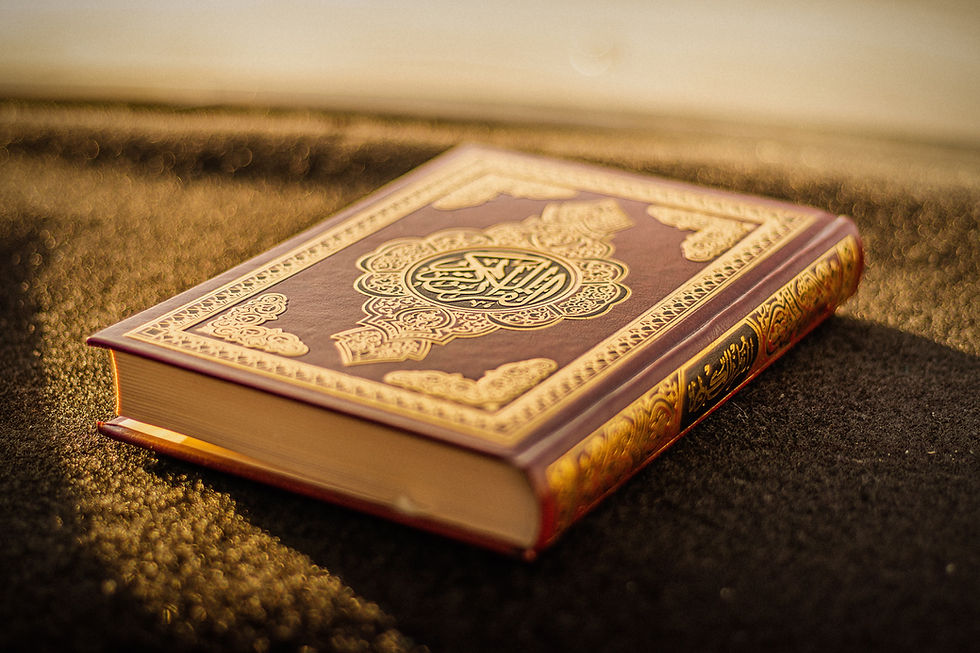Why Writing Arabic Alphabets Makes Learning Long-Lasting: The Key to Quran Classes for Kids in Milton
- Saima Azmi
- Sep 29, 2024
- 3 min read

If you've ever found yourself wondering why your kids can recall their favorite cartoon catchphrases with eerie accuracy but struggle to remember their Arabic alphabets from Quran class, you're not alone. The process of learning Arabic—especially for children—comes with its own set of unique challenges. However, one underrated yet highly effective technique in Quran classes for kids in Milton is the act of writing out the Arabic alphabet. Let’s break down why this simple practice holds so much power.
The Power of Writing in Learning
Writing has a funny way of making things stick—kind of like the way that catchy jingle from your kid's favorite TV show refuses to leave your brain. But when it comes to the Arabic alphabet, writing plays an even more critical role in retention.
Here's why:
Engaging Multiple Senses: When your child writes out the letters of the Arabic alphabet, they're not just seeing the shapes—they're engaging with them on multiple levels. The brain loves this multi-sensory approach. It's like giving the brain a VIP, all-access pass to remember things better.
Muscle Memory: Remember the last time you typed in your PIN without even thinking? That’s muscle memory in action. The same applies to writing the Arabic alphabet. As kids repeatedly trace and write the letters, their hands learn the motion, making it easier to recall those letters long after the Quran class is over.
Active Learning: Writing requires more active brain engagement than just listening or reading. It's the difference between passively watching a cooking show and actually chopping vegetables. Kids who write down their letters are doing more than memorizing—they’re learning to engage with the Arabic language on a deeper level.
Writing and Quran Classes for Kids in Milton
Milton, a growing hub for families seeking quality Islamic education, offers Quran classes tailored specifically for kids. Aqeedah Institute, for example, focuses on making the learning process effective yet enjoyable, emphasizing the importance of writing. When students sit down to practice writing the Arabic alphabet, they're not just going through the motions—they're laying down the foundational blocks of long-lasting knowledge.
And let's face it—Arabic isn't exactly the easiest language to learn if your first words were in English. The unique flow and shapes of the letters can be confusing at first, but writing them out gives kids a chance to familiarize themselves in a way that merely speaking or listening can't match. In fact, research shows that children who write out what they're learning are much more likely to retain that knowledge in the long term.
Writing + Repetition = Long-Term Retention
In Quran classes at Aqeedah Institute, kids aren’t just taught to memorize verses of the Quran. Instead, the emphasis is placed on understanding the language. This is where the practice of writing Arabic alphabets becomes crucial. Repetition is key to long-term retention—by writing out letters repeatedly, children are more likely to remember them when they sit down to recite.
It's almost like their brains are being prepped for the long haul—ensuring that this knowledge doesn’t just sit in short-term memory but gets transferred to their long-term storage. And when it comes to something as significant as understanding the Quran, long-term retention is the name of the game.
Why Choose Aqeedah Institute?
If you’re looking for Quran classes for kids in Milton, Aqeedah Institute prioritizes teaching methods that go beyond surface-level memorization. Through the act of writing, kids build a stronger connection to the Arabic language. They begin to appreciate the beauty of the Quran—not just as a series of sounds, but as a script they can understand and engage with.
So, if you’ve ever wondered why writing Arabic alphabets is emphasized in Quran classes, now you know. It's not just a chore or busywork—it’s a critical learning tool that helps ensure your child builds a long-lasting connection to the Quran.



Комментарии